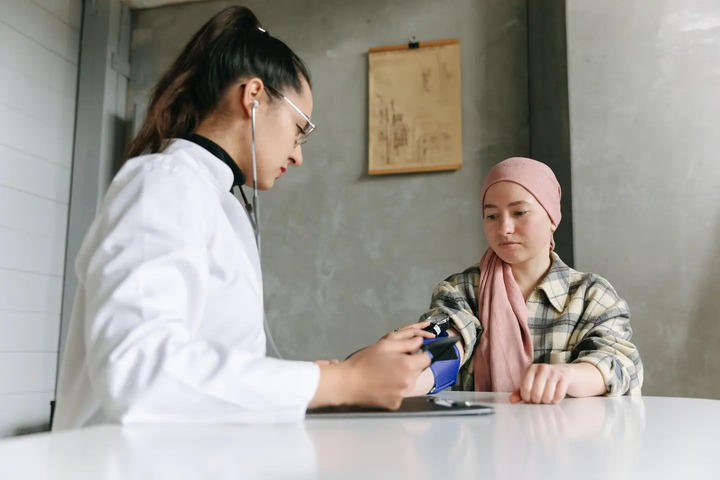
The concept of a cure holds immense significance in the realm of medicine, especially in the context of cancer. It symbolizes hope, unity, and the promise of a healthier future. However, the reality is that doctors seldom use the term “cured,” particularly when discussing cancer with patients.
According to Jason Aboudi Mouabbi, an assistant professor specializing in general oncology and breast medical oncology at the University of Texas MD Anderson Cancer Center, the term “remission” is more commonly employed by oncologists. Remission signifies the absence of all signs and symptoms of cancer, with no detectable cancer cells through various diagnostic tests such as scans, exams, and bloodwork.
Yet, remission does not equate to a complete eradication of cancer from the body. Mouabbi explains that while cancer may not be visible, it cannot be definitively declared as “gone.” Hence, doctors refrain from using the term “cure” until a patient has been in remission for at least five years. Even then, the five-year mark serves as an imperfect standard, particularly for certain cancer types like breast cancer, where the accuracy of estimates may vary.
Moreover, achieving a state of being “cancer-free” is exceedingly rare and challenging. This term extends beyond remission, implying the absence of any cancer cells within the body. However, complete eradication of cancer is nearly impossible, as there is always a risk of cancer recurrence, with malignant cells potentially lying dormant and undetected.
When individuals face a cancer diagnosis, their primary goal is not merely to attain a cure but to embark on a journey towards better health, despite numerous obstacles such as the exorbitant cost of treatment. They strive for remission, following weeks and months of rigorous treatments. Here’s a glimpse into the diverse strategies employed by oncologists in contemporary cancer care:
Chemotherapy remains a cornerstone in cancer treatment, although advancements have led to the development of targeted therapies tailored to specific genetic alterations within cancer cells. These therapies, such as antibody-drug conjugates, focus on cancer cells while sparing healthy tissues, revolutionizing the management of various cancer types.
Radiation therapy, including innovative approaches like proton therapy, offers precise targeting of cancer cells while minimizing damage to surrounding healthy tissues.
Surgical techniques continue to evolve, with a focus on reducing side effects and improving patient outcomes. Chemotherapy administered before surgery can shrink tumors, facilitating easier surgical removal with fewer complications.
Immunotherapy harnesses the body’s immune system to identify and eliminate cancer cells. Cutting-edge therapies like CAR-T cell therapy and checkpoint inhibitors have shown promising results in clinical trials, offering new hope for individuals battling cancer.
Furthermore, preventive measures, including vaccinations against human papillomavirus (HPV), present opportunities to reduce the risk of certain cancers, such as cervical cancer.
Innovative research endeavors, like mRNA-based cancer vaccines, hold promise for preventing and treating a wide range of cancer types, underscoring the continuous efforts to combat this complex disease.
In conclusion, while the term “cured” may evoke optimism and reassurance, oncologists prioritize achieving remission and enhancing overall health outcomes for cancer patients through a multifaceted approach to treatment and prevention.